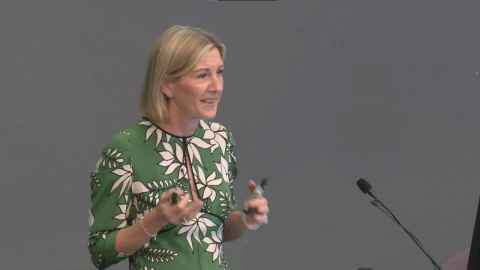Born too soon: Liggins public lecture May 2024
17 May 2024
In this Liggins Institute public lecture, researchers Professor Katie Groom and Dr Lisa Dawes discuss how social, ethnic and geographic inequity increase the risk of babies being born prematurely, and what needs to be done.

When Professor Katie Groom helped establish the Carosika Collaborative, a group of concerned clinicians, researchers, representatives of not-for-profit organisations and whānau impacted by preterm birth, the group was faced with an intractable problem - rising rates of preterm births - and years of government inaction.
Almost one in 10 babies in Aotearoa are born prematurely, a significant risk factor for death and lifelong disability. And the rates are getting worse.
Between 2009 and 2021, Aotearoa's national rate of preterm birth went from 7.4 percent to 7.9 percent. That's almost 5000 babies born early in 2021.
Where people live, their ethnicity and socio-economic status are signficant factors in rates of preterm birth, and the health outcomes of those early babies. Whānau Māori and Pacific and Indian families are more likely to have a preterm baby than European and Asian (excluding Indian) families, and their babies are less likely to survive when born very early (less than 28 weeks).
Watch the Liggins Institute May 2024 Public Lecture for real-life stories of the impact of preterm birth on families, plus Liggins researchers Professor Katie Groom and Dr Lisa Dawes talking about the Carosika Collaborative and what they are doing to improve the care and outcomes for babies and whānau.
Media contact
Nikki Mandow | Research communications
Email: nikki.mandow@auckland.ac.nz
Mobile: +64 21 1743142